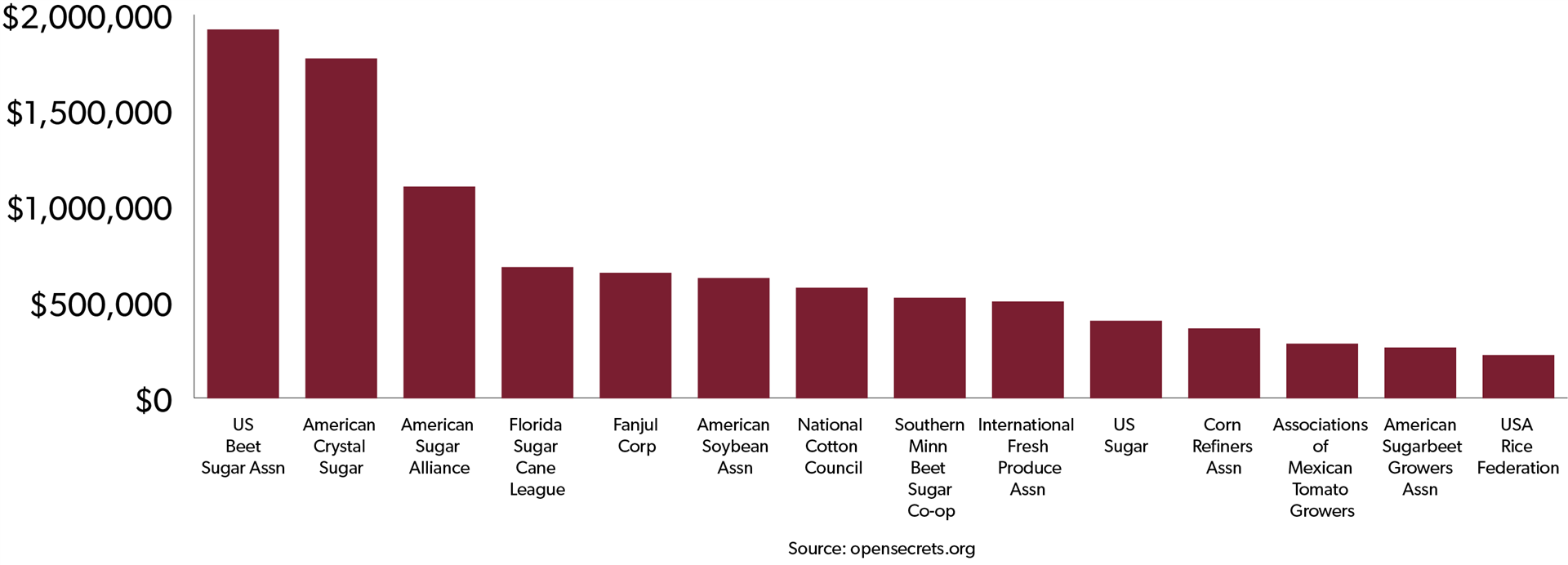
High food prices and inflation will be on many Americans’ minds when they shop for Halloween candy this year. Unfortunately, they will pay extra at the check-out register thanks to a costly federal sugar program that inflates the price of sugar and sugar-containing products.
Over the past three fiscal years, Americans have paid more than twice the world average price for refined sugar. That adds up to an additional $18 billion in costs based on U.S. purchases of sugar for food and beverages over that timeframe, all because of the federal sugar program and import barriers that restrict access to affordable sugar.
Lobbyists for the sugar program repeatedly describe it as “no-cost.” Their math is off by about $6 billion a year.
Figure 1: Inflated U.S. Sugar Prices (Billions)

It’s no surprise that sugar producers have invested heavily in lobbying activities to restrict competition and inflate prices. Despite accounting for a relatively small amount of U.S. agricultural production, sugar producers dominate crop-sector lobbying.
Figure 2: Lobbying on Crop Production & Basic Processing, 2023

So far in 2023, sugar producers have spent more on federal lobbying than the American Farm Bureau, the National Pork Producers Council, the National Cattlemen’s Beef Association, and the National Milk Producers Federation combined. In dollar terms, American farmers produce about 20 times as much corn as sugar, but sugar producers have spent nearly 10 times more than corn producers on lobbying this year.
Sugar producers, like the rest of us, have every right to lobby Congress. But Congress should look past special interests and do what’s best for American consumers and sugar-using industries. That means enacting reasonable reforms like those in the Fair Sugar Policy Act to combat high sugar prices.
In addition, instead of restricting imports of affordable agricultural products, the federal government should focus on opening new markets to help competitive U.S. farm and livestock producers.
The federal sugar program is a costly trick played on American families buying treats. If Congress refuses to drive a stake through the heart of the sugar program, it should at least enact reforms that minimize the program’s cost and reduce inflationary pressure on food prices.

